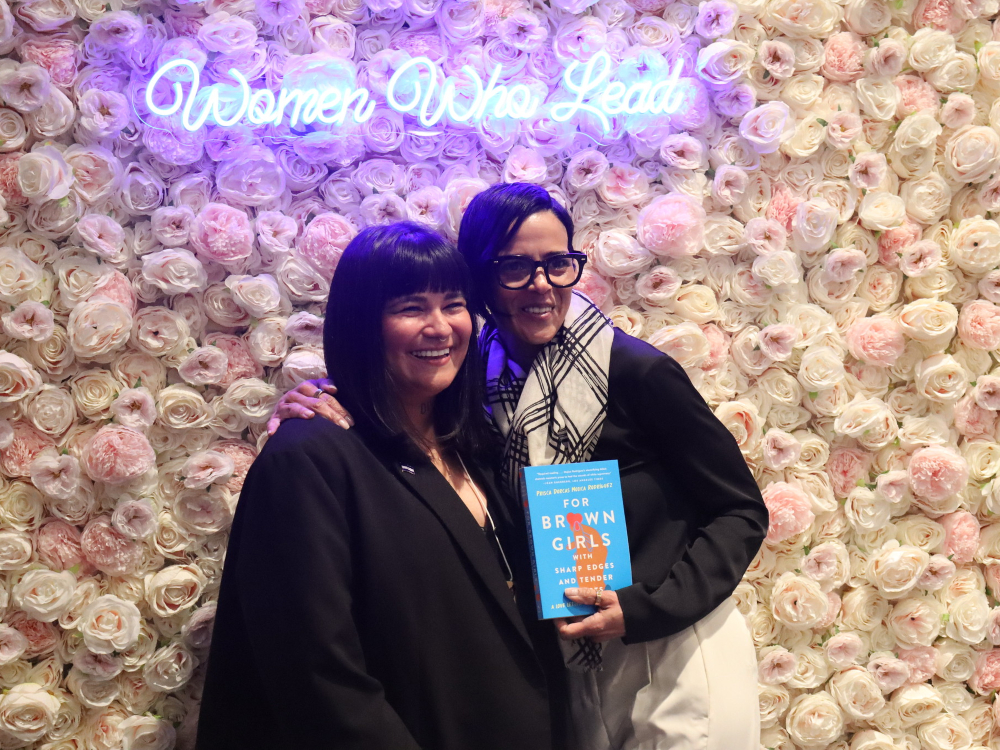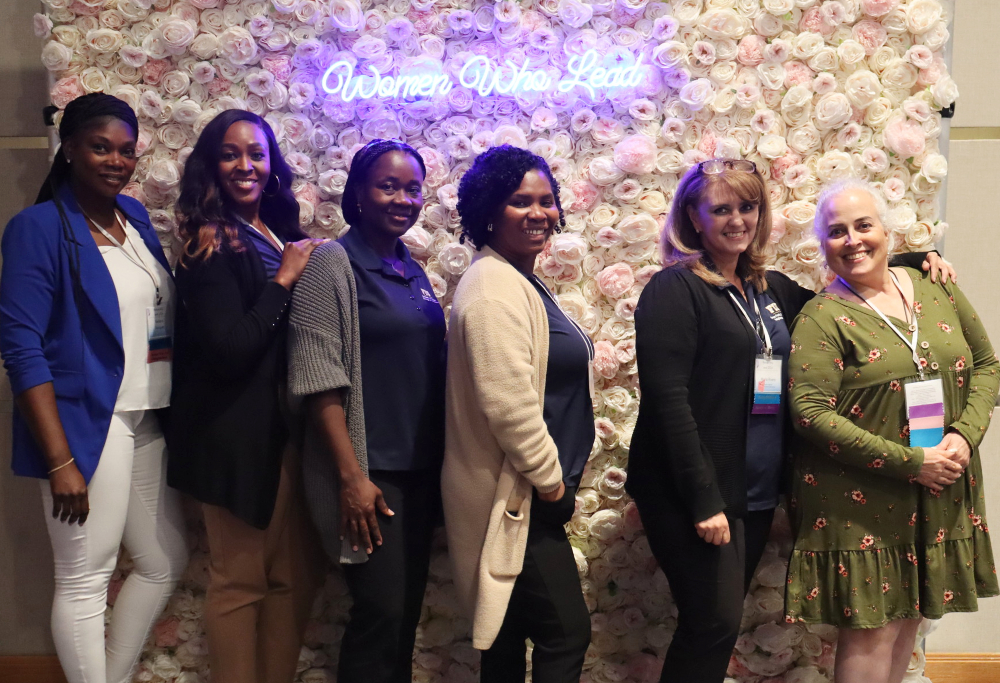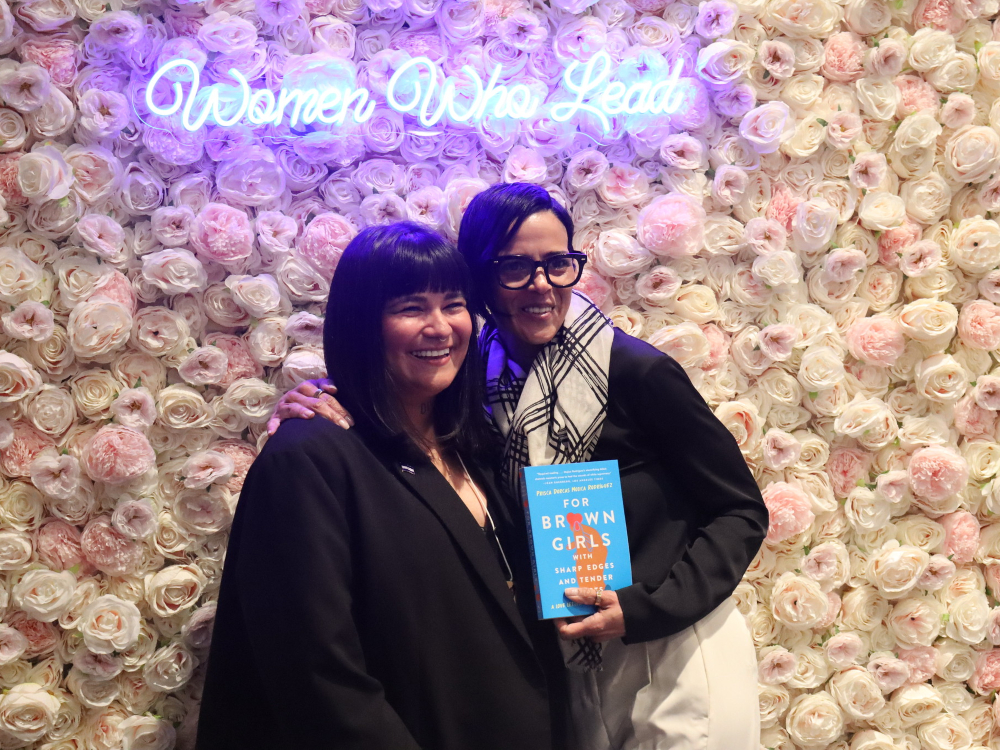
FIU’s 17th Annual Women Who Lead Conference brought together more than 20 women who are making lasting change in their fields and communities to share their insights on the path to leadership.
Hosted by the FIU Women’s Center in the Centers for Student Engagement, the Women Who Lead conference is a full-day event that centers women’s voices in brave spaces and creates an opportunity for intergenerational engagement. This year’s conference highlighted women who advocate for marginalized communities, speak against injustices, and create safe spaces for those around them.
“Today, we champion so many women in this room who continue to pour into the lives of so many people in the FIU community, including mine,” said Women’s Center program manager Brittany Davis. “If you are looking for a woman who is a changemaker, start with the woman in the mirror.”
Want to be a changemaker yourself? Here’s some advice from fellow women leaders:
Find a sponsor and cultivate a personal “board of directors.”
First, you need a sponsor: someone who already “has a seat at the table” you envision yourself at in the future. This person is someone who advocates for you and recognizes your knowledge, skills and work audibly and in the presence of those who can influence your career’s upward trajectory. A sponsorship is often a relationship that sparks naturally as you begin to establish your presence and prove your capability in the workplace.
Your “board of directors” is a group of people in your circle – including sponsors mentors, family and colleagues – to whom you look for guidance when making big decisions. “Everyone needs a board of directors who represent your various goals in life and who you can turn to for trusted advice,” said Dr. Carleen Vincent, Assistant Dean of the Steven J. Green School of International & Public Affairs.
Prioritizing responsibilities and setting boundaries is paramount.
You can’t fill others’ cups when your own cup is empty. Burnout is real, and when you become so overwhelmed by the tasks you have taken on, the stress can manifest negatively in your body.
Signs of burnout include physical exhaustion, illness, decline in mental health, and more. If you experience these symptoms, you'll know it’s time to pause and reassess how you can prioritize the most pressing responsibilities while taking a break from the less immediate ones. Ask your supervisors, professors, advisors, family members, therapists and others for assistance in this process.
“We cannot do everything by ourselves. As much as we would like to believe we are Superwomen, we all need help,” said Dr. Kimberly Liu in a panel discussion on the importance of setting boundaries in your personal and professional lives. Liu is a physician specializing mental health, women’s issues, and chronic and terminal illnesses, who has training in both Western and Eastern medicine. She later added, “Your boundaries aren’t hurting anyone. You’re protecting yourself by setting them.”
The journey won’t always go the way you may have been told to expect. Don’t be discouraged.
Prisca Dorcas Mojica Rodriguez, the conference keynote speaker, is an FIU alumna and the author of multiple books on empowerment for women of color. In her keynote address, she shared that at many points in her life, she felt like doing what she was raised to believe would lead to success was not yielding results.
Unable to find a job after earning her Master of Divinity from Vanderbilt University Divinity School, she began sharing her life experiences on social media. Eventually, her storytelling skills caught the interest of editors at HuffPost, and she was invited to write for their “Latino Voices” column.
That became her springboard to write and learn to nurture her voice. By the next year, she was writing full-time across 13 publications, which led to her signing with a literary agent in 2017 who helped her get her first book deal from a “big five” publisher. Today, she is the founder of Latina Rebels, a platform with more than 350,000 followers.
“How we make it into these spaces isn’t going to look like what we think it’s going to look like. It isn’t what we’ve been told it’s going to look like,” Mojica Rodriguez said.
Imposter syndrome is a natural emotion, but don’t let it hold you back.
Even when you have the necessary training and experience required to fulfill a certain role, and you’ve demonstrated the skills and knowledge necessary to get where you currently are in the first place, it’s easy to feel like you don’t deserve it, or that there must be someone else better suited to it.
Mojica Rodriguez feels this response is ingrained into women, but she encourages doing your best to ignore any nay-saying voice inside your head.
“My advice is to just do it anyway. Do it even when you feel all of those emotions. Do it even when the rash is creeping up your neck... But remember you don’t have to do it alone. Don’t underestimate the power of the people in your circle,” she said.
Dr. Vincent also reminded participants, “You are here because you deserve to be here. You are here because you earned your spot here. Don’t let anybody pour that little bit of doubt into you, because that can derail your progress.”
To learn about future events and programming, follow the FIU Women’s Center on Instagram.

